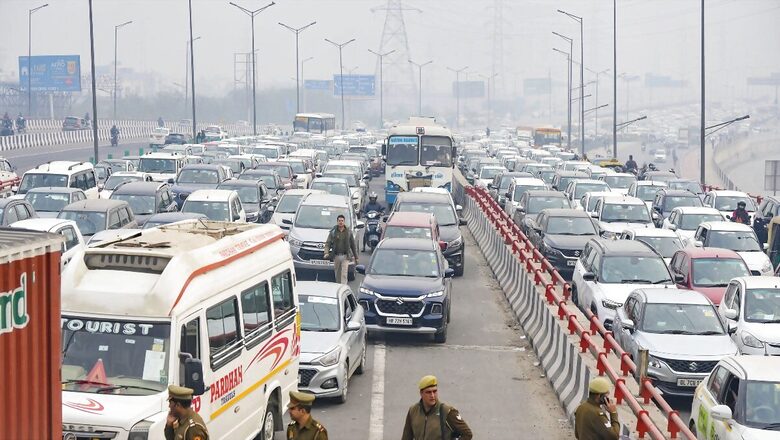
views
After certain lapses in handling the 2020-21 farmers’ protest, the Delhi Police has revamped its strategy for the ongoing stir, sources have told News18. Special commissioners have been deployed in all districts, with two overseeing Lutyens’ Delhi and others keeping an eye on border areas of the capital. Additionally, one deputy commissioner has been assigned to the residences of the Prime Minister and union home minister in anticipation of the “Chalo Dilli” call by some farmer groups, with the possibility of an escalation in protests.
In contrast to the previous approach, which saw two special CPs stationed at borders and reinforcements sent only after protesters breached the Red Fort, this time, a comprehensive hierarchy of officers ranging from joint commissioners to deputy commissioners has been established under the supervision of special commissioners, News18 has learnt. These officials will manage various districts and borders, with additional support from district officers and the Central Armed Police Forces.
To enhance surveillance capabilities, drones will monitor less accessible areas, complemented by other technologies aimed at preventing protest escalations. Regular updates from each area are communicated to the police commissioner’s office, while the Intelligence Bureau provides crucial information to aid operations.
Scheduled to resume on Wednesday, the “Dilli Chalo” march is part of the farmer groups’ demand for the expansion of the minimum support price (MSP) regime, to include crops like oilseeds and bajra. This demand follows the government’s proposal offering MSP guarantees on pulses, maize, and cotton.
The ongoing preparations and coordination signify a proactive approach by the Delhi Police to prevent disruptions and ensure public safety during the anticipated protests, said officials.
Protest leader Gurnam Singh Charuni said that if the central government doesn’t agree by February 21, farmers from Haryana too will join the agitation.
“The government should think and understand that these two things (oilseeds and bajra) are very important (for procurement). Just like they mentioned pulses, maize, and cotton, they should include these two crops too. If these two are not included, we will have to think about it again because these are our important things which do not get sold. Today mustard is available in the market at Rs 4,200, it is being sold at Rs 2,000 less than the MSP,” news agency ANI quoted Charuni saying.




















Comments
0 comment